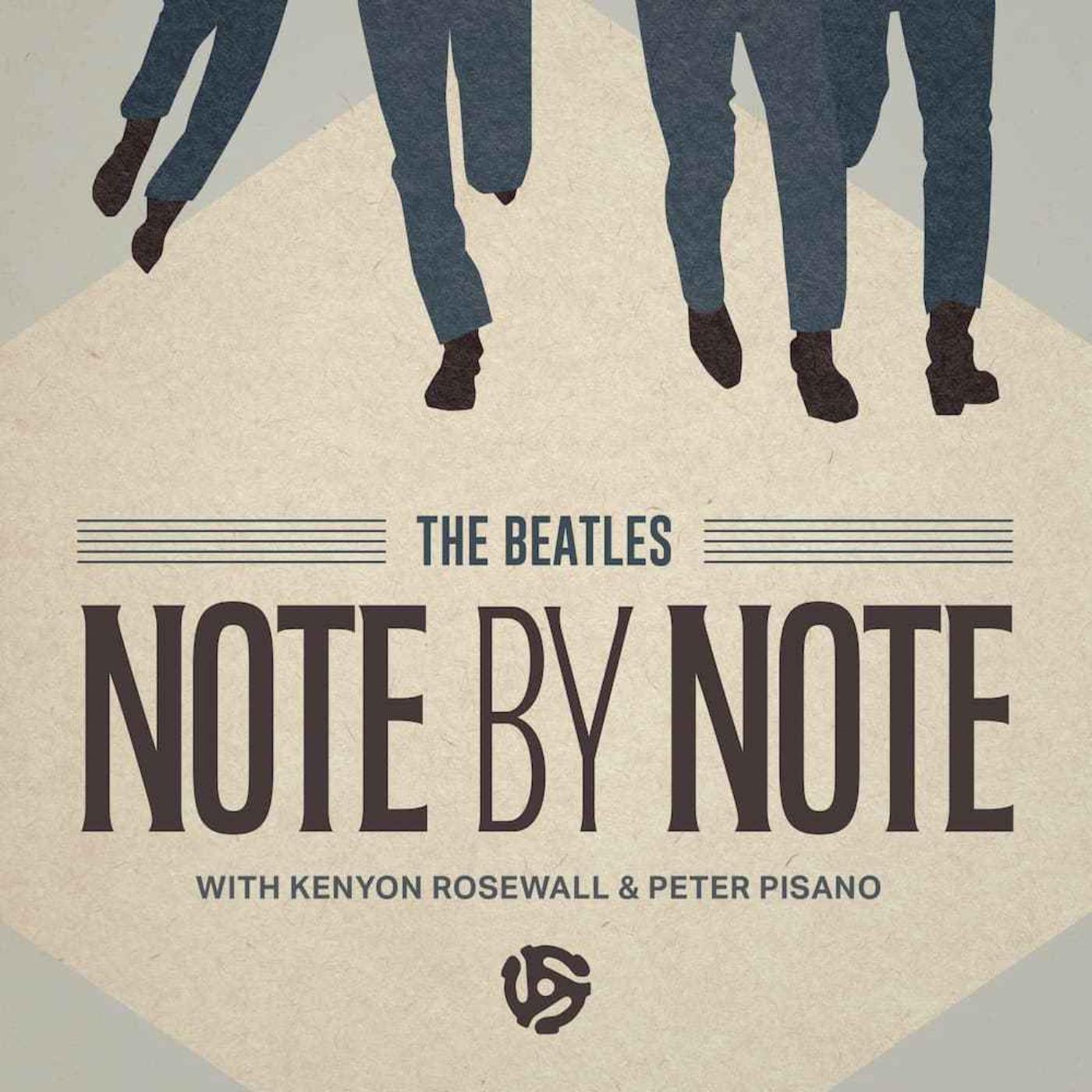
Join former bandmates and lifelong friends Peter and Kenyon as they dive deep into the legendary discography of The Beatles in "The Beatles: Note by Note." With decades of friendship and a shared passion for music, these lifelong Beatles fans meticulously analyze each Beatles song in chronological order of release. Blending historical context with personal anecdotes and technical insights, Peter and Kenyon's discussions are enriched by their background as musicians. From their humble beginnings to their rise as music icons, explore how The Beatles' songs were crafted, recorded, and how they transformed the music industry. Whether you're a die-hard fan or new to The Beatles' music, "The Beatles: Note by Note" offers a comprehensive and definitive journey through the catalog of one of the greatest bands of all time. This podcast is a must-listen for anyone seeking an in-depth, authoritative exploration of The Beatles' musical legacy.</p><br>For more information, visit <a href="https://www.notebynoteseries.com" rel="noopener noreferrer" target="_blank"><u>https://www.notebynoteseries.com</u></a></p><hr><p style='color:grey; font-size:0.75em;'> Hosted on Acast. See <a style='color:grey;' target='_blank' rel='noopener noreferrer' href='https://acast.com/privacy'>acast.com/privacy</a> for more information.</p>
Originally a Carl Perkins B-side, Matchbox became a showcase for Ringo Starr during the Beatles’ whirlwind studio sessions of mid-1964. In this episode, we explore why Ringo was chosen to sing this rockabilly relic, how it fits within the band’s American roots influences, and the peculiar circumstances surrounding its recording.
With George Harrison on lead guitar and producer George Martin himself playing piano, the session was slapped together in between tour rehearsals and studio catch-up. Ringo’s vocal is energetic but limited, and the track’s historical significance often outweighs its musical punch.
We also discuss the broader role of “Ringo songs” during this period and how Matchbox helped solidify his image as the affable, everyman Beatle—even when the material was beneath the band’s usual standards. It’s a minor track, but a meaningful glimpse into the Beatles’ live-driven momentum in 1964.
Hosted on Acast. See acast.com/privacy for more information.
“Slow Down” might be credited to The Beatles, but this cover of a Larry Williams B-side reveals more about the band’s limitations than their strengths. In this episode, we take a close listen to John Lennon’s vocal delivery—raw, impassioned, and unsteady—and question how this track ended up released at all.
We explore the hurried recording process, George Martin’s unusually hands-off approach, and the unflattering final mix that left Lennon audibly straining to keep up with the tempo. It’s not just a technical mess—it’s a philosophical one too, raising questions about artistic control, band fatigue, and the group’s growing pains in 1964.
Still, the track serves as an authentic moment in Beatles history. “Slow Down” captures the chaos of their rise and the human edge of Lennon’s rock-and-roll obsession. It’s imperfect, but telling—and we’re here for the story behind it.
Hosted on Acast. See acast.com/privacy for more information.
Before The Beatles were a household name, before “Love Me Do,” there was Like Dreamers Do—a teenage composition by Paul McCartney that became one of their earliest calling cards. In this episode, we explore the song’s unusual journey through the Decca audition and into the EMI offices, where it played a quiet but crucial role in landing the Beatles their deal with Parlophone.
We also look at the overlooked role of George Martin—not just as a producer, but as a man navigating a personal crisis. His affair with secretary Judy Lockhart Smith and his tense position at Parlophone intersected with the band’s arrival in surprising ways.
Through early demos, context from the Merseybeat scene, and a discussion about Paul’s songwriting at the time, we trace how Like Dreamers Do helped turn possibility into destiny—even if the band never officially released it during their prime.
Hosted on Acast. See acast.com/privacy for more information.
Hosted on Acast. See acast.com/privacy for more information.
Hosted on Acast. See acast.com/privacy for more information.
Hosted on Acast. See acast.com/privacy for more information.
Hosted on Acast. See acast.com/privacy for more information.
Hosted on Acast. See acast.com/privacy for more information.
Hosted on Acast. See acast.com/privacy for more information.
Hosted on Acast. See acast.com/privacy for more information.